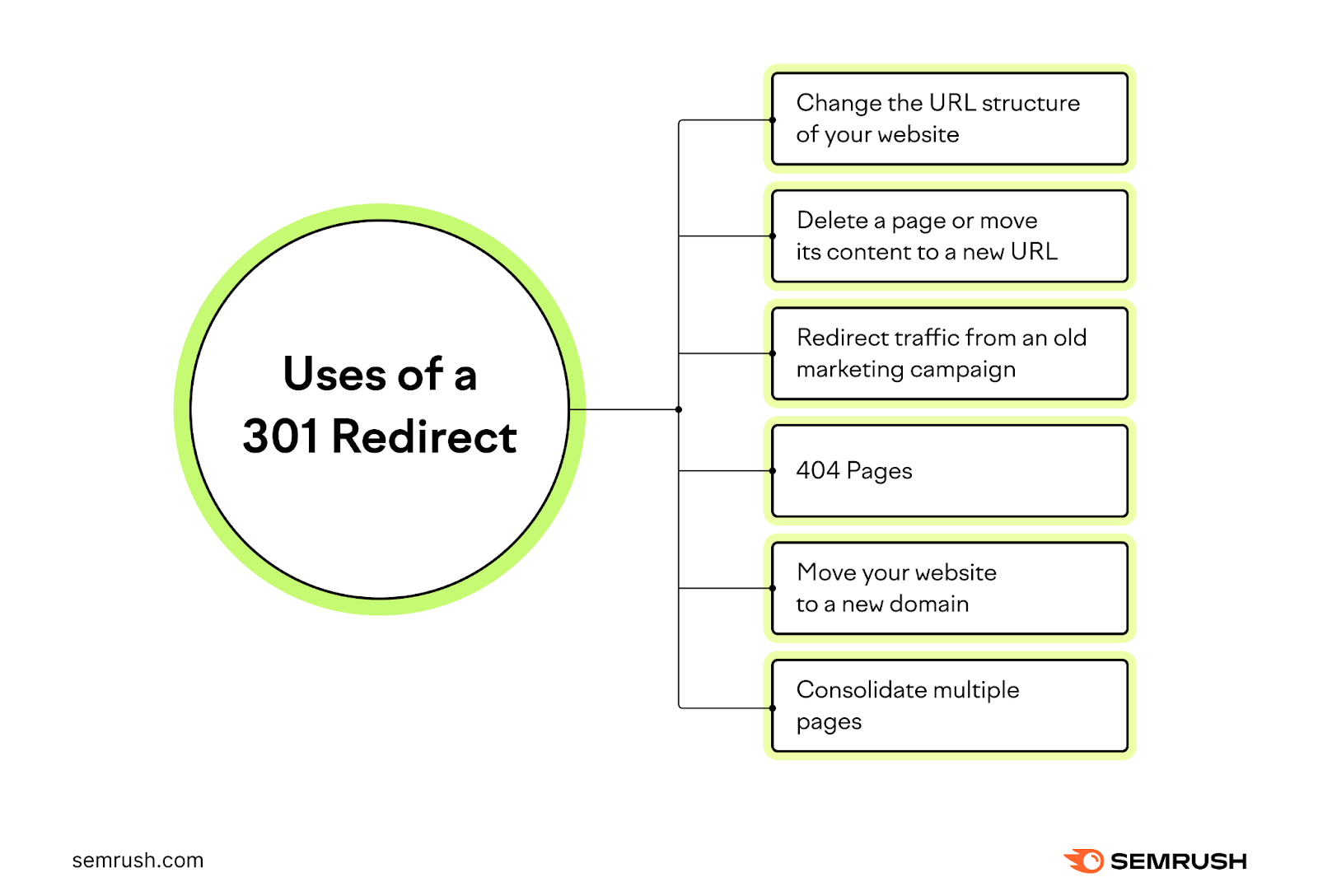Rise Organic Web Traffic by Taking Advantage Of the Potential of 301 Redirects for Search Engine Optimization
When it comes to optimizing a website for search engines, the calculated usage of 301 redirects can considerably impact organic website traffic growth. By recognizing the ins and outs of 301 redirects and implementing them efficiently, businesses can open the complete capacity of their Search engine optimization strategies.
Understanding 301 Reroutes Essentials
When starting the trip to comprehend 301 redirects, it is vital to grasp the basic principles that underlie this essential element of internet site optimization. A 301 redirect is a permanent redirect from one URL to one more. It notifies online search engine that the original link has actually relocated to a brand-new area, moving the SEO worth from the old link to the new one (301 Redirect). This procedure makes sure that individuals and search engines are routed to the most present and appropriate page, boosting individual experience and maintaining search engine optimization rankings.
In addition, using 301 reroutes appropriately can protect against individuals from encountering 404 mistakes, enhancing the total functionality of the internet site. Understanding the fundamentals of 301 redirects is fundamental for any Search engine optimization method aiming to improve web site visibility and functionality while keeping search engine positions.
Implementing Redirect Methods
To effectively enhance site efficiency and individual experience, critical application of redirect strategies is essential in optimizing online presence. 301 Redirect. When carrying out redirect techniques, it is vital to have a clear plan in position to make sure a smooth change for both internet search engine and users. Begin by recognizing the web pages that require to be redirected and the most appropriate redirect type to utilize, such as 301 redirects for permanent actions or 302 redirects for momentary changes
On a regular basis assessing and updating redirect approaches as needed is essential to preserve a healthy and balanced internet site and make best use of natural traffic. By executing redirect techniques efficiently, sites can enhance their Search engine optimization performance and provide a far better individual experience.
Preventing Typical Redirect Mistakes
One critical facet in preserving a smooth internet site change during redirect implementation is guiding clear of usual redirect mistakes. One common error to prevent is implementing numerous chains of redirects. These chains can reduce the customer experience and puzzle internet search engine spiders, causing decreased organic web traffic. One more mistake is not updating internal links to reflect the new redirect courses. When inner links point to old Links, it can result in an inadequate user experience and negatively effect SEO efforts. In addition, stopping working to set up correct redirects for both the www and non-www versions of a site can divide web link equity and cause indexing concerns. It is crucial to make sure that all variations of the link redirect to a solitary preferred version to settle ranking signals. By avoiding these usual redirect errors and performing comprehensive screening post-implementation, site proprietors can properly enhance their search engine optimization methods and drive organic web traffic development.
Tracking Redirect Performance
Tracking the performance of 301 redirects is critical in identifying if they are efficiently directing traffic to the desired location. Keeping track of the natural traffic, bounce rates, and time invested on the redirected web pages can assist assess whether the redirects are satisfying their intended goals. By continually checking redirect performance, internet site owners can make data-driven decisions to enhance their SEO techniques and improve the total customer experience, eventually leading you could check here to improved organic web traffic and search engine rankings.

Leveraging Redirects for SEO Development
Redirects play a crucial role in improving the search engine optimization (SEO) development of a web site by tactically directing individual web traffic towards appropriate web content. Leveraging redirects effectively can significantly influence a web site's visibility and position on search engine results web pages (SERPs) When carrying out redirects for SEO development, it is important to concentrate on maintaining link equity by redirecting old Links to brand-new, relevant pages. By doing so, search engines are much more most likely to associate the authority and importance of the old page to the new destination, favorably affecting the overall search engine optimization performance. Furthermore, using 301 redirects can assist consolidate link signals and protect against content duplication concerns, which can water down search engine optimization initiatives. Additionally, leveraging redirects for SEO growth includes tracking and updating them on a regular basis to ensure they continue to serve their intended objective successfully. Constantly reviewing the performance of redirects and making required adjustments based upon analytics and search engine optimization best methods is essential to driving sustained natural website traffic development.
Final Thought
In conclusion, carrying out 301 redirects can significantly benefit organic web traffic growth by efficiently directing customers to relevant content. Recognizing the essentials, executing redirect approaches, preventing usual blunders, and checking performance are critical action in leveraging redirects for SEO growth. By making use of 301 redirects efficiently, web sites can boost their internet search engine positions and supply a much better user experience, eventually resulting in increased organic traffic.

Keeping track of the natural traffic, bounce rates, and time spent on the rerouted pages can help examine whether the redirects are fulfilling their intended goals. When implementing redirects see this page for Search engine optimization development, it is important to focus on protecting web link equity by redirecting old Links to new, relevant web pages. Recognizing the fundamentals, executing redirect approaches, preventing usual find more information blunders, and monitoring performance are essential actions in leveraging redirects for Search engine optimization growth.